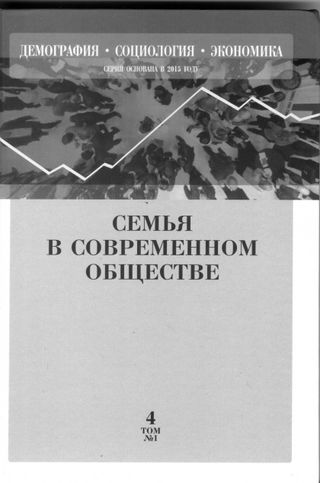?
Дискурс о модели современной российской семьи и стратегия семейной политики
In modern Russia, the discourse on the value of family and family life in the system of life values of Russians, the role of family in the formation of personality and upbringing of children is relevant. The strategy of forming the desired family model becomes an integral part of the family and demographic policy. The article presents the results of a sample study in the framework of the project "development of the methodology of statistical evaluation of demographic security in the context of globalization", conducted in 2016. The survey data demonstrate the mosaic of views of Russians on the desired family model and suggest that among Russians do not find many supporters of the position that characterize the traditional family with clearly established Patriarchal family roles. The use of statistical analysis methods allowed to identify groups of characteristics that reflect traditional and modern family values. There are different views of the family life model in society and effective family policy should take this diversity into account.
In book
